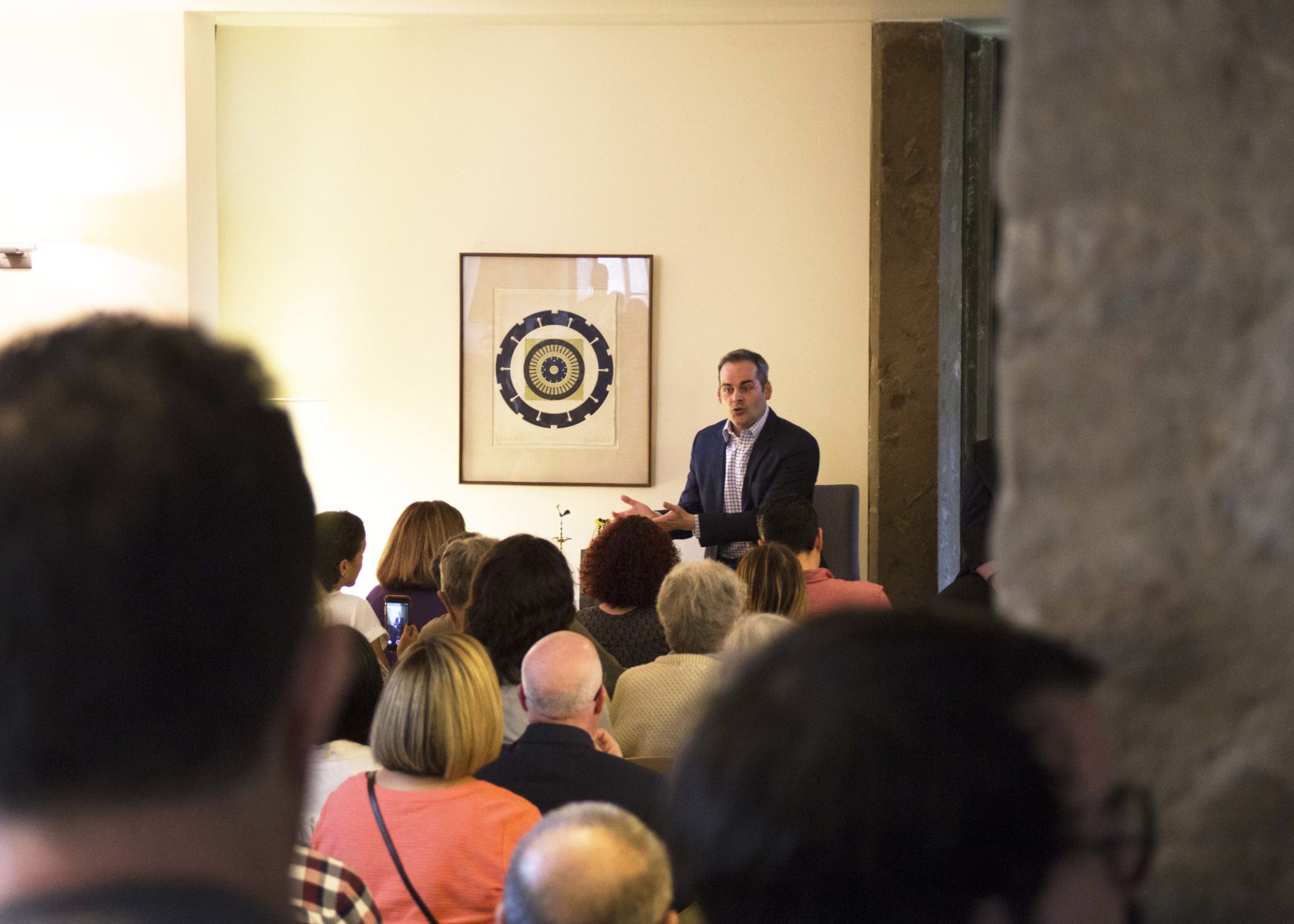
David Begnaud, a CBS News correspondent who covered the catastrophic damage caused by Hurricane Maria to Puerto Rico in 2017, gave a rousing talk to a crowd of over 90 people from the Yale and Greater New Haven community at Ezra Stiles College on Monday, Oct. 1.
At the talk, Begnaud discussed his work in Puerto Rico. He focused on the challenges he encountered when covering the catastrophe and the lessons he learned from the experience. Instead of giving a prepared speech, Begnaud engaged the audience in a Q&A style discussion. Many of the attendees were residents of New Haven.
Begnaud started the talk by describing chaos in Puerto Rico when he first landed there in September 2017.
“There were no cots on the island. No tarps. Food was slow to get there, boats were slow. The government collapsed. The governor couldn’t reach a single mayor on the island,” Begnaud said.
According to Begnaud, part of the problem was that Federal Emergency Management Agency’s typical role is simply bringing supplies to an affected area, not distributing the provisions. But in the case of Puerto Rico, Begnaud said, FEMA had to distribute the supplies as well because of the lack of communication within the Puerto Rican government.
Begnaud explained that because of power outages on the island, all communication had to be done person to person. In one case, a woman came up to him at an airport asking for help because her mother was going to die if she did not get on the next plane off the island, since she was in need of a dialysis procedure. Begnaud happened to be meeting with the governor right after she approached him. He retold her story, and the governor sent his assistant to help.
“Journalists are not supposed to fix it, they’re supposed to tell it,” Begnaud said. “I crossed that line all the time… I always wanted to do more, but, quite frankly, journalism wants you to do less. But this case was too urgent and too under-resourced.”
During his time reporting from Puerto Rico, Begnaud barely slept and mostly ate peanuts. He added that when he came back to the mainland U.S. he felt “compassion fatigue,” noting that one of his co-workers said that Begnaud’s mental state resembled that of their returning war correspondents.
Begnaud said that what he saw on the island changed him for life and showed him that journalism could be a form of public service.
According to Begnaud, one of the most troubling parts of the experience was the fact that Puerto Rico, like many U.S. states, lacked the sufficient framework to accurately determine the death toll. The official account was 64 deaths until August 2018 when officials accepted a study by George Washington University that estimated it at around 2,975.
He then emphasized that the general public will play a crucial role in allowing reporters to continue covering the devastation of Puerto Rico.
“Here’s what gets the attention of my bosses: ratings,” Begnaud said. “The reporting we do is only as important as it is consumed and shared. What I need from all of you is continued engagement.”
Throughout the discussion, several members of the audience thanked Begnaud for his extensive coverage of Maria, some saying that his work was their only source of information from the island.
At one point, Begnaud said that he still hopes to read the 10,000s of messages he has received through Twitter since Sept. 20, 2017.
“The messages you haven’t read say ‘God bless you’,” said Lizandra Mejias-Salinas, who lives in Wallingford. “You may be Cajun, but you are a brother, Puerto Rican for life. You were a lifeline for myself and my family.”
Javier Roman Nieves FES ’19, a Puerto Rican who attended the talk, said that he believed Begnaud “made a difference since day one” through his coverage, since there was a lack of other reporting coming from the island.
Max Tiako MED ’20, who also attended the talk, said that it was “really good” and that Begnaud had an opportunity to bring the issues in Puerto Rico into the spotlight.
“Media institutions may have poor intent in covering communities that are underprivileged and oppressed, especially since many newsrooms are primarily white,” he said. “I hope he can use his platform to lift up journalists from Puerto Rico.”
On Oct. 10, Yarimar Bonilla, associate professor at Rutgers University, will speak at Ezra Stiles on the Anthropology of Puerto Rico post-Maria.
Helena Lyng-Olsen | helena.lyng-olsen@yale.edu .







